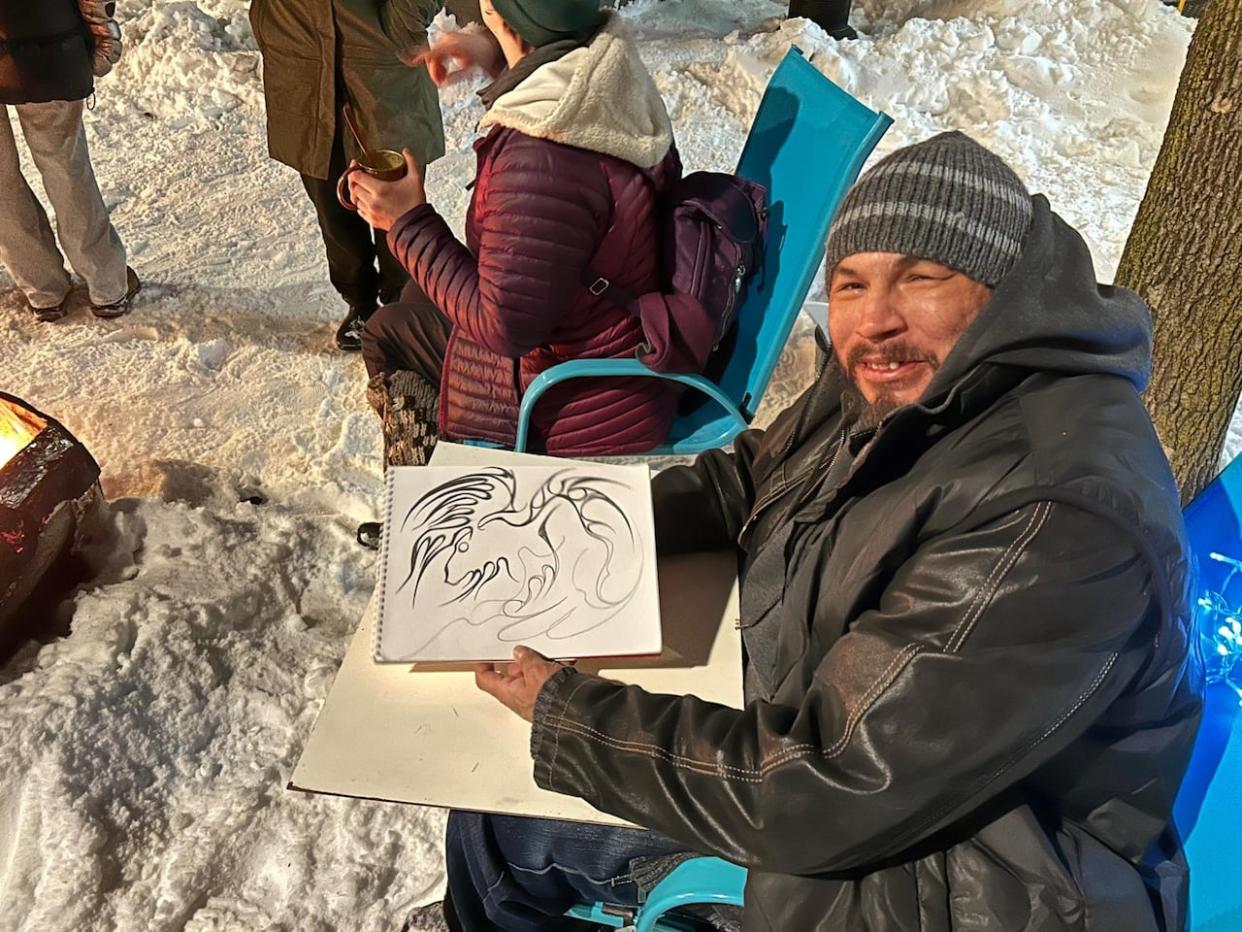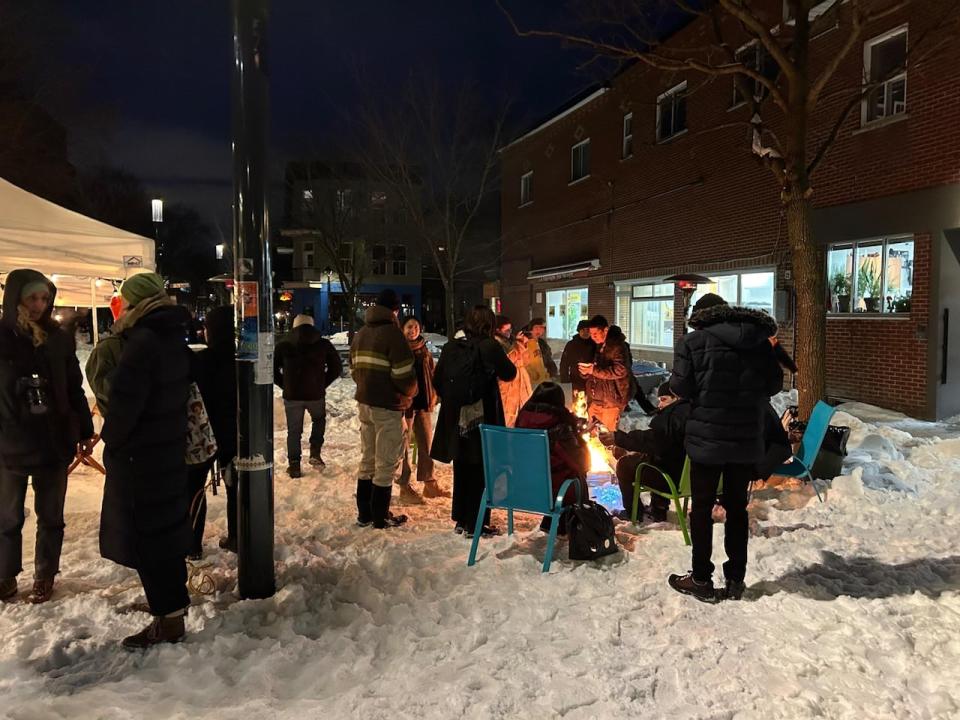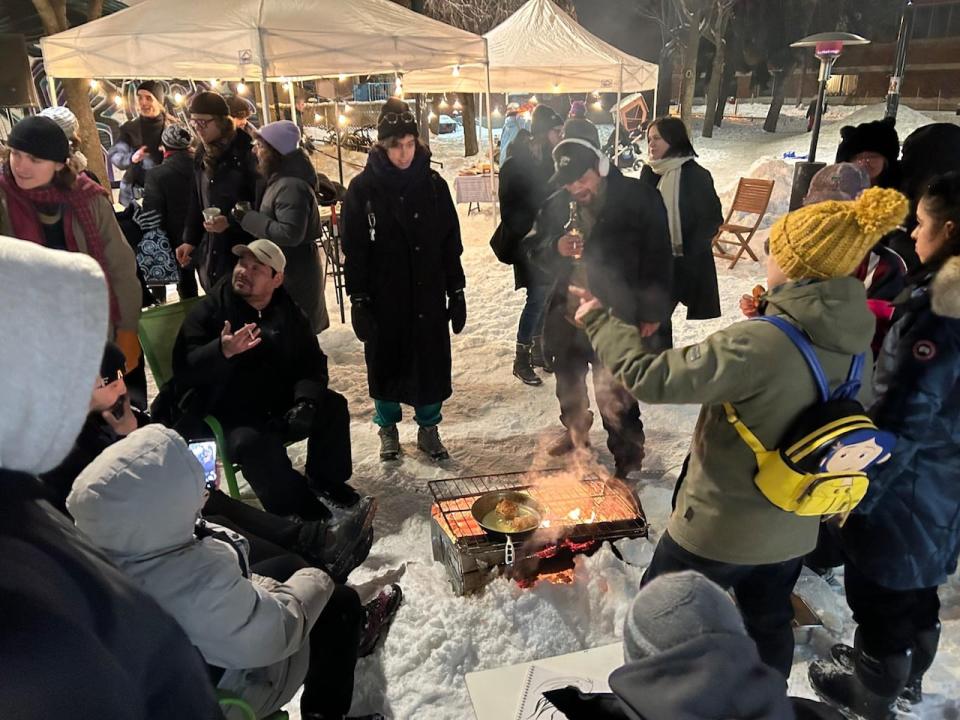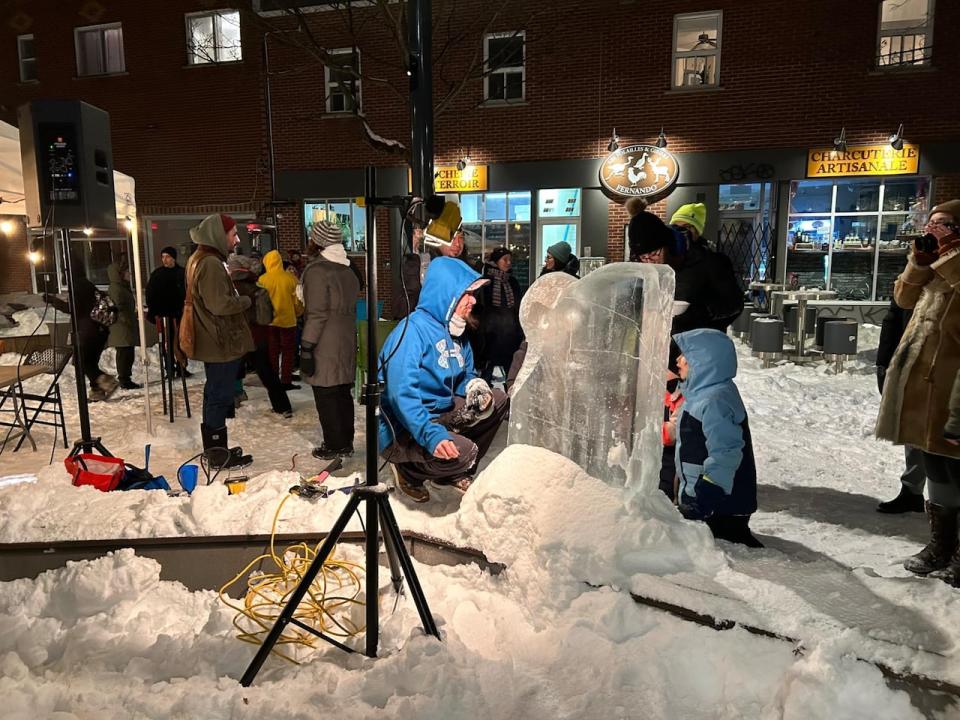In Milton Park, winter storytelling event builds understanding between neighbours

It's been years since Daniel Joseph Charles McLaren was last home.
He's from the Anishinabeg First Nation community of Winneway in northwestern Quebec, a two-hour drive from Val d'Or.
"I miss seeing my cousins, my family. I miss playing pool with my uncle Gary. He's cool like that. I haven't seen him in a long time," said McLaren.
He sat by a fire pit as he drew a moose, which reminded him of his uncle.
"My uncle used to go moose hunting all the time," he said. "He's also the one who told me to not screw up, and to keep going. So I'm still going.''
McLaren was one of many people at the event sharing art and stories. It took place at Terasses Roy, a pedestrianized block of Montreal's Plateau Mont-Royal borough.

People getting together for a winter storytelling event at Terasses Roy. (Jessica Wu/CBC)
The event was organized by community groups Comm-un and Santropol Roulant. They invited the street community and social workers, as well as families and businesses in and around Milton Park, just east of McGill University.
The goal is to build understanding between the different populations in the area.
"For sure it's going to be uncomfortable if you have street people and you have kids. But we can deal with this uncomfort," said Jonathan Lebire, director of Comm-un.
"It's okay to just feel that for a minute and then we can all play together. I think that's what we have today."
Lebire's organization supports people experiencing homelessness in Milton Park. He said homelessness needs to be seen as connected to social injustices that people face every day.
"We have to listen to their stories. When you're in the streets, you're likely facing traumas and then coping in the only ways you know how to," he said.
'We're a street family'
Lebire wanted the event to also bring some lightness to the neighbourhood.
"Sometimes, I'm weak. Sometimes, you're weak. And if you're not together, then you're just weak in your own space," he said.
And he said it was important to have a fire pit.

Participants of the winter storytelling event chat around the fire pit. (Jessica Wu/CBC)
"That's what the Indigenous cultures are all about: creating a space where people can sit around in a circle, with no hierarchy and talk about their day. Naturally, that is what happened," he said.
Around that fire stood Chris Brown, a street intervention worker at Comm-un. Before that, he experienced homelessness for three winters.
"I know how people can feel, in a position where it feels like nobody is on your side," he said.
He hopes the event is a chance for people to humanize what he calls "our street family."
''We know each other from the street. When somebody we know dies, it really strikes us all. We're family. It's really hard for us,'' Brown says.
Lebire adds that there needs to be more adapted resources, such as for grieving. He said such resources would help people on the street process losing someone.
''Rarely it's done in the right way, and then it's just accumulated,'' he said.
Learning to live together
Magali Casaubon is the urban agricultural program manager at Santropol Roulant. Her organization provided resources for the event, including food and a centre for people to warm up.
Casaubon says working with Comm-un has been transformative. She says her organization has a more hierarchical structure, whereas Comm-un has a more horizontal approach.
She explains that she's had to adapt her usual ways of working to better respond to the needs of the homeless population of Milton Park.

The community in and around Milton Park gathered to learn about ice sculpting. (Jessica Wu/CBC)
"We paid for the ice blocks for the event, and it was expensive. I saw people smashing one of them and my first instinct was to go and stop them. But then I see one of the workers facilitating the process, people laughing and letting go of their rage,'' Casaubon said.
"And I think to myself that I should let go of my plans."
She says that, sometimes, letting go of your own agenda is the best way to tackle homelessness and cohabitation issues.
As for Daniel Joseph Charles McLaren, he says he will be back if more events like this are organized.
"I'm OK. I came to draw. It reminds me of home," he said.


